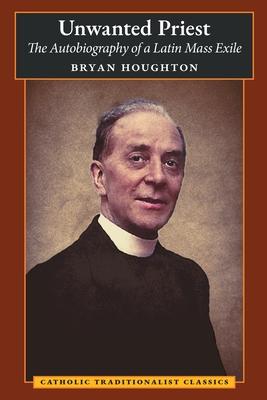Fr Bryan Houghton's life was fraught with momentous transitions. As a Protestant child educated in a Catholic school, he gradually awakened to the truth of the Faith and eventually converted. He responded to the call to priesthood, which he understood in its traditional sense as an office of offering sacrifice, reconciling sinners, feeding the spiritually hungry, and preaching divinely revealed truths. When the Second Vatican Council hit, and even more the successive waves of liturgical reform in the 1960s, Fr Houghton was brought to a crisis of conscience: how was all this lust for change compatible with the rock-solid Faith to which he had given his life? Why must the Church's noble, ample, orthodox rites of worship be hacked to pieces? A man who placed great store by the maxim lex orandi, lex credendi, Houghton watched the dismantling of liturgical tradition with growing dismay, and when the substance of the Mass was changed beyond recognition and he could not bring himself to say a rite that belied his faith, he resigned his curacy and drove to southern France, where he bought a house in which to live, pray, offer the Tridentine Mass-and, fortunately for us, compile his memoirs.
The never-published English manuscript of the resulting book, unique in its blend of entertaining stories and precise critiques, was long thought to be lost, with only its authorized French translation still in print; but the recent discovery of the original manuscript allows us access to this masterpiece decades later, when the situation in the Church is eerily like the one that faced its author in his time. A stable priest contented with tradition in the midst of mandated modernizations, Fr Houghton offers us in his autobiography a moving and insightful account of why a priest would choose rather to be "unwanted" than to betray his innermost convictions.
